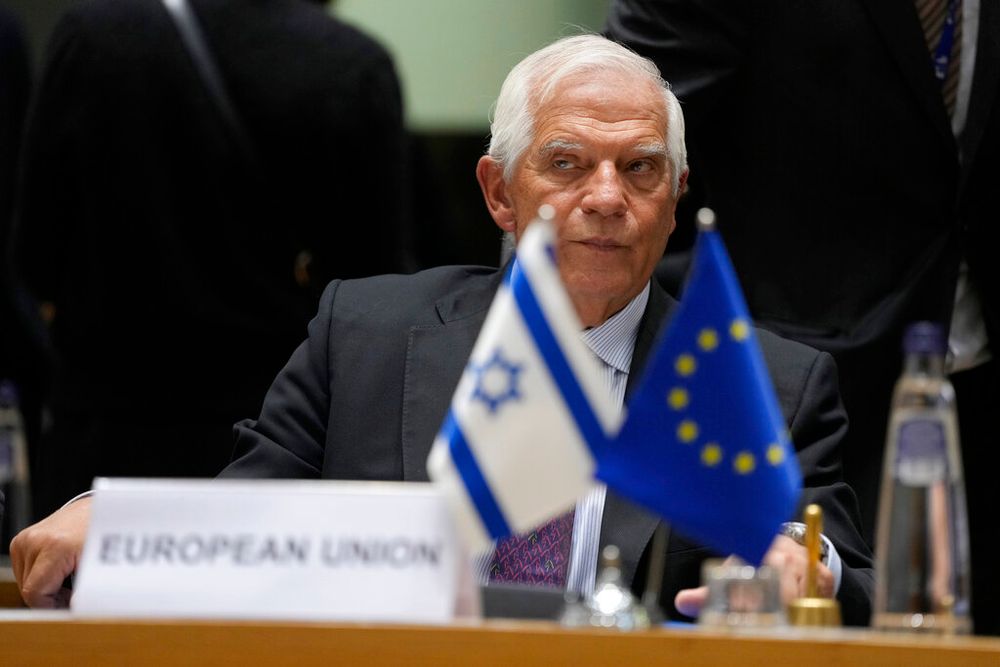In an interview with the website of the Strategic Council on Foreign Relations, Mehdi Shakibaei referred to the letter of the foreign ministers of the three countries of France, Italy, and Germany to the European Union’s foreign policy officials to intensify sanctions against Hamas and its supporters, stated: Western countries, by discrediting Hamas intends to separate the Resistance groups from the body of Palestine and then sanction them with the stigma of terrorism. At the same time, the entire people of the Gaza Strip are part of the Resistance and Hamas.
While pointing to the failure of the efforts to relocate the residents of the Gaza Strip and transfer them to other areas, including the Sinai desert, he added: Western countries even hoped that by creating discontent, the residents of the Gaza Strip would turn against the Resistance groups and hold protests, but have failed in those measures and after more than two months since the crimes of the Zionist regime, the people of Gaza refused to show favor to their policies; because the Resistance in Palestine is popular and its Mujahidin are the members of Palestinian families.
The Deputy of the International Union of Non-Governmental Organizations Supporting Palestine emphasizes that the Zionist regime has not been successful in either of its two designs, i.e., expelling Palestinians and creating protests and riots against Resistance groups. Therefore, the West, under the pressure of Zionist lobbies and cartels, has undertaken a diplomatic and media campaign on behalf of the Israeli regime in order to increase the pressure against the Resistance, said Such measures are carried out. At the same time, Europe ignores all its human rights slogans and remains silent in the face of the tragedies of Gaza and the crimes of the Israeli regime and puts forward plans such as boycotting Hamas.
Saying that the issue of the current war between the Gaza Strip and the Zionist regime should be looked at in the framework of the theory of the war of civilizations, Shakibaei said that it is a war between the Western world and the Palestinian Muslim nation and reminded that they want to discredit the Hamas movement. At the same time, Hamas represents a part of the Palestinian nation, and the results of the last elections in that region also showed it. However, European countries want to see it in the context of a terrorist organization in order to pursue their goals through it.
Referring to Europe’s displeasure with the reduction of US attention towards the war in Ukraine, he added: In the past days, we have seen that the European authorities ignored the right of the Palestinian people to determine their own destiny and continued to create space against the Palestinian Resistance, stating that Hamas has no place in the future and political horizon of Gaza. Now, they are trying to take another step towards imposing their will on the Palestinian people by trying to sanction Hamas.
The analyst of West Asia affairs, while emphasizing the need for European countries to pay attention to the consequences of their policies towards Palestine, noted: The Palestinian issue is not a new issue, but a crisis that has been around for over a century. In 1917, when British colonialism pledged to the Jews of the world to create a national homeland for them in Palestine, the Palestinian crisis began. It has been 76 years since 1948, when the regime was established inside Palestine and occupied started in open collusion with the United States, Britain, and France. In fact, for about 76 years of this one century, the main problem has been the occupation. Until the main problem and difficulty, that is, the occupation of Palestine, is not solved, no plan or initiative will achieve the desired result.
The Deputy of the International Union of Non-Governmental Organizations Supporting Palestine continued: Western sanctions in the form of the policies of the United States, Europe, and the United Nations against Hamas intensified since 2006 and with the victory of Hamas in the elections of the Palestinian Legislative Assembly and especially since 2009 with the success of this group in the 22-day war against the Israeli regime. However, even if they want to impose new sanctions and supposedly isolate and destroy Hamas, the idea of resistance will not disappear.
He stated: We should not forget that Hamas was formed in the past four decades, and the Palestinians were resisting in the years before that. At that time, when there was no Hamas, the Palestinian people would rise up. Therefore, with such measures, they will be unable to eliminate the idea of resistance, and the problem of Palestine will remain.
Saying that turning to the threadbare plans that have been tried many times during the last century to solve the Palestinian problem is doomed to failure, Shakibaei noted that none of those plans pay attention to the central issue of Palestine, which is the issue of occupation. As long as the Palestinian occupation issue is not resolved, there will be no opening regarding the Palestinian issue, and the resistance will continue. Even if, by no possibility, they manage to destroy Hamas, the people will still resist because their land has been usurped, and their identity has been questioned.
He reminded that this is the fifth or sixth generation of Palestinians after the occupation, and all Mujahidin elements who fight in the field against the regime, both in the Gaza Strip and in the West Bank, are young people who basically did not see the beginning of the occupation and are about 18 to 30 years old. Therefore, it is clear that they cannot destroy the idea of resistance even by destroying a Resistance organization.










0 Comments